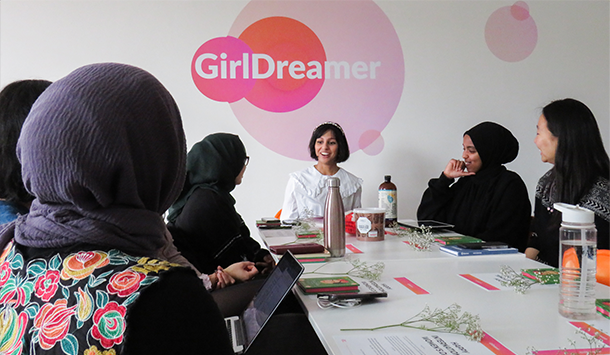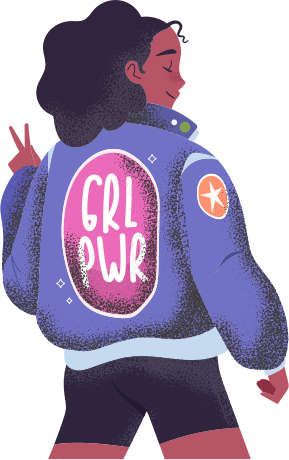After years of relentlessly searching, getting terrible SuperCuts haircuts and having many forced blow-dries, I have recently found something that many of us curly girls in the West search so hard to find: a hair salon which actually caters to, and knows how to cut and treat our hair. Coming from Brazil, I have always been astounded by the sheer audacity of British hair salons to charge extra, or even refuse, to cut my hair because they ‘don’t know how to do curly.’ Even though a huge number of the population – and sometimes even white people – has curly hair, it’s still an extremely common occurrence for salons to turn us away. But the problem isn’t only dependent on hair salons and their lack of experience with handling curls. Just as most things us women of colour experience, the debate about curly hair is deeply ingrained in societal structures and norms which always strive to place us lower than white people in every possible way.
For example, take The Princess Diaries. A feel-good film that every millennial remembers watching at least once during childhood, giving many of us hope that we would turn out to be princesses, get a glow up and find out that our dream partner had been right under our noses all along. Sounds nice, right? Yet, if you really think about it, it’s just another film that strongly reinforced beauty ideals upon impressionable and vulnerable young people. Though Anne Hathaway had a whole team of people whose jobs were to make her even more conventionally ‘pretty’ and ‘classy’ (read ‘whiter’), most of us would never have access to these resources, even if we wanted to. And besides, why are we constantly made to change and mutilate ourselves and our features just to attain some sort of white beauty ideal? The perception of curly or kinky as ugly has haunted many of us from a young age. No matter which part of the world you are from, it’s likely that if you have curly hair, you’ve probably thought of, or have, straightened it at least once. Even in Brazil, where huge amounts of women have naturally curly and kinky hair, we have come up with the most chemically damaging and effective way of straightening our hair and killing our heritage: Brazilian Keratin Hair Straightening. The procedure is so common that as a kid, I would constantly ask my parents to have my hair chemically straightened as a birthday present. Looking back now, the pain I wanted to inflict upon myself, both physically and mentally, definitely scarred my perceptions of what beauty is, taking me on a downward spiral of self- hate and wishing to one day look beautiful and, thus, whiter.

As we have fought so hard to end racist oppression and for our self and collective acceptance, the last few years has seen somewhat of a change in beauty ideals, where the previously ‘white’ face of beauty is becoming more and more diverse. Beauty is no longer solely white, and our curls, our curves and our features are beginning to be acknowledged for their beauty and value. But the damage has already been done, and for many of us, it will take a long time to regain our curls back; to accept and fall in love with our real selves. Because of this, seeing white, straight-haired people get perms, or curl their hair, or wear weaves, without experiencing the physical or mental damage we have experienced, always feels like a stab in the heart. Since childhood, we had to and still struggle with not being accepted, being deemed dirty, unkept, unprofessional and ugly, and this shared pain has, and will, last much longer than any ‘overnight straight to curly hair routine’ could last.
Title in reference to Solange’s song ‘Don’t Touch My Hair’
—
This guest blog piece was written by Sofia Ferreira Santos who is Comparative Literature student at King’s and a freelance writer for Her Campus KCL, gal-dem, SkinDeep magazine and STRAND magazine, as well as the Deputy Editor of The Tab KCL. Follow Sofia on Twitter – @sofiferreiras



